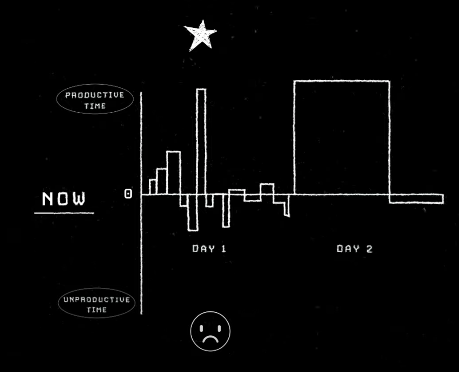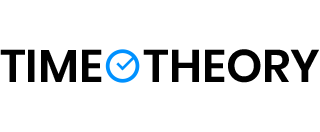So for the vast majority of my life, the way I viewed productivity was completely wrong. It's genuinely a miracle cool that I got anything done. And it's a massive mistake that I see almost everyone making in the productivity space and in the personal development space. And I want to correct that with what I like to call a theory of relative productivity and genuinely it's doubled or tripled my productivity.
Not an exaggeration. Now, the way I used to be productivity was like, if something was productive, it was worth doing. That's the only filter I'd run in my mind. If something was productive. Yes, I would do that thing. And that was it. And this led to me doing a bunch of different things in my postal life. I was meditating every single day, I was doing negative visualization.
Every single day I was doing cold showers. I was journaling. I was doing the Wim Hof method. All of these different things that I heard were productive. I was doing. And in my business life that led to me doing a bunch of different things. There was times that I was making videos for tick talk. I was writing blog posts.
I was making YouTube videos, everything that I thought was productive, I would do. And I'm telling you, this is the wrong strategy. And it led to me making almost no progress. And instead there's a way that you can actually get a ton more done in less time, which is important if you're an entrepreneur and you're in a competitive environment.
But it's also important if you just want to get more done so that you can relax for the rest of your day. And whilst we're talking about productivity, there's one thing that's productive for almost everybody. And that is to secure your social media and online identity and privacy, which is where the sponsor of our video Kaspersky comes in.
For the longest time I was putting out content on social media. And I didn't realize how much information I was giving out where I was, who I was with, what I was doing when I was doing it. Pretty much everything. Just thinking of your own social media is going out onto the incident. And if this gets into the hands of the wrong people, it is serious trouble.
And I believe that moving forwards a social media and the internet matures taking care of our online identity is something that everyone's going to have to think about. But we should think about it now, before it becomes a problem, because if it becomes a problem, we can't rectify it afterwards. Once the bad people have our information, there's no way we can get that back.
So recently I've been using Kasperskys online privacy checker. It's an online quiz and you walk through what you're trying to set up, what security level you want to have and what platform you're using it as. And it's going to give you completely free information on how you can secure your identity online.
It's a super valuable tool and it's completely free to click the link in the description and secure yourself online. Now it's the first link in the description. So what I was saying, just because something's productive, doesn't mean it's worth doing. And what I want to do is explain two different parts of the theory of relative productivity.
And then at the end of the video, I'm going to summarize everything in a couple simple sentences. You can actually apply this to your business, to your life, to your job, whatever. So the reason that you shouldn't just do something because it's productive is because of opportunity costs. Now, let me explain what that is.
So opportunity cost applies when we've got a limited amount of resources. Imagine you've got $10 and you're trying to decide whether you should buy Mars bars or Snickers bars. In this example, both the Mars bar and a Snickers bar is $1. So we can try and understand the opportunity cost of this by drawing a graph on one end, we've got Mars bars on the other end, we've got Snickers bars.
You could choose to spend all of your money on Mars bars and you would be up here or you could choose to spend all of your money on Snickers bars and you could get 10 different Snickers. Or you can draw a line between these two things, and this can show you all the different varieties of options you could choose.
You could choose to buy nine Mars bars and get one Snickers bar, or you could choose to buy five miles bars and get five Snickers bars. What the opportunity cost is what you have to sacrifice to get one of something else. So in order for me to go through it with zero Snickers, Two, one snicker I'm having to sacrifice one MozBar so the opportunity cost of one Snickers bar is one.
MozBar what I have to sacrifice to get one Snickers bar is one MozBar makes sense. Now in economics, most of the time, this is used for money. Money is a limited resource, but we can also apply this to time. You see, you've got a limited amount of time. Which means if you spend time on activity a you cannot spend time on activity Beatles.
The risk opportunity costs to where your time goes, because your time is limited. So what most people don't realize when they're spending their time on meditating or doing cold showers or having a one hour morning routine or doing multiple different things that they didn't productive in that business or in their personal life, they think that's them being incredibly productive.
But what they don't realize that by them doing those things that unable to do other things with that time. So just because something's productive doesn't mean it's worth doing, because it may not be as productive as other things that you could be spending your time on. You see with personal development.
The main thing you should be doing is your main thing. If you're an artist, you should be painting. If you're a writer you should be writing and any time you spend not doing those things may actually be not as productive as you think, because it's taking away from time that you should be writing. I can explain this with a graph.
Imagine we've got an axis here up here is productive time. I'm not here as unproductive time. And let's say this is day one, and this is day two. When most people do in that day is they start the day with the morning routine. Doing the things that they've been told are productive meditation, the Wim Hof method, whatever is the latest, shiny object.
This is what they rushed to. This is what they spend their mornings doing. And you're right. It is productive to be doing those things. So they spend their day doing a variety of different things. And there may be times in the day that they're doing unproductive things. They may be procrastinating. They may be watching YouTube.
They may be going on Facebook, whatever the case may be. And yet there may be a time that they do a little bit of their main thing. If they're an entrepreneur they're going out and getting clients they're improving the product, whatever the case may be, they spend some time doing those things. But the majority of that day is felt with things that are kind of distracting or kind of productive.
And this is what that day looks like. And if you look at this day, the vast majority of the day is spent doing productive things. It's spent doing things that are more productive than unproductive, but that doesn't mean that this was the best use of time for this person. Imagine instead if this day looked like this, imagine instead if they did this activity and they just did it a lot longer than the rest of the time, what if they cut out the distractions that seem productive, stayed laser focused on what their main thing was become incredible, became better than their competition.
That is where something truly incredible happens. And that's when you can really get a lot of things done. Now, this applies, like I was saying in competitive landscapes, if you've got to get ahead, But it could also apply if you want it to just work really hard in the morning and then relax in the afternoon or evening, you can get a ton more done in a few hours than most people get done in a whole day, because most people spend the whole day not doing the main thing.
So you could choose to have a square that ends like this. And just chill for the rest of the day, doing unproductive things, but overrule you've got far more done because you kept the main thing, the main thing, and you've stayed focused. So instead of using zero as a baseline to determine whether or not something's productive, you should be comparing activity relative to the most productive use of your time.
Because anytime spending an activity, that's not the most productive use of time is taking away from that most productive use of your time. So view productivity relative to the most productive use of your time. Instead of relative to zero, instead of spending your time doing good things, spend your time doing great things.
And the second productivity mistake that I used to make was I used to think there was such a thing as objective productivity. I'd heard all of these personal development, gurus or productivity gurus that the Pomodoro technique was objectively productive or meditating was objectively productive. All of these different things that you hear people recommend, and they told you that they're productive.
Another example is waking up at 5:00 AM. This is a completely skewed way of viewing productivity. There is no such thing as objective productivity, only relative productivity compared to where you want it to get to. So if we look at this graph, there's a massive flaw because there's no such thing as objective productivity and objective unproductivity that just doesn't exist.
Instead, what we should do is we should zoom out and we should view up here. As when you want to get too. So we can draw a star of where you want to get to down here is what you're trying to avoid. That's unproductive. And the neutral part is just where you want now. So when you're trying to figure out whether something's productive, you must always start with, what is the goal?
What am I trying to get to? Then you can base productivity based on whether or not it gets you closer towards that goal. And you can base unproductivity, unproductive things is whether it's getting you closer towards where you want to get to or further away from where you want to go. Yeah. Nobody can give you prescriptions.
Nobody can tell you this is productive because productivity is relative to where you want to get to and what may be productive for one person. Yeah. Maybe completely unproductive for another person. So whenever you're trying to figure out how you should be spending your time, what activities you should be doing in a day-to-day basis, you must always start with the end in mind.
So the overall theory of general productivity is that productivity is relative, both relative to the other activities you could be doing, but also relative to the end goal and where you want to get to.

